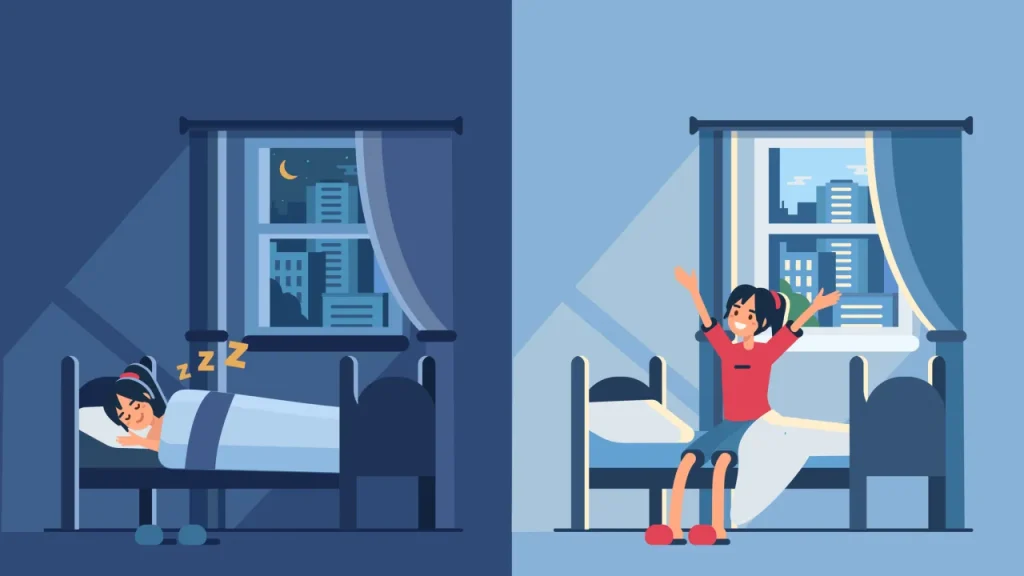Introduction
ADHD (Attention-Deficit/Hyperactivity Disorder) is a neurodevelopmental disorder that affects millions of people worldwide. Apart from the challenges in attention, focus, and impulsivity, individuals with ADHD often struggle with sleep-related issues. In this blog, we delve into the connection between ADHD and sleep and explore effective strategies for improving sleep habits in those with ADHD.

Understanding the Connection
· Sleep Patterns in ADHD: Research suggests that individuals with ADHD often experience difficulties in falling asleep, staying asleep, and waking up feeling refreshed. These sleep disturbances can exacerbate ADHD symptoms, leading to a cycle of sleep deprivation and impaired cognitive functioning.
· Neurological Factors: The underlying neurological differences in individuals with ADHD, such as altered dopamine levels and irregular sleep-wake cycles, contribute to disrupted sleep patterns.
· Coexisting Conditions: It’s essential to consider coexisting conditions like anxiety, depression, or restless leg syndrome, which are common in individuals with ADHD and can further disrupt sleep.
Effects of Poor Sleep on ADHD:
· Worsened ADHD Symptoms: Inadequate sleep can amplify ADHD symptoms like inattention, hyperactivity, and impulsivity, making it challenging to manage daily tasks and responsibilities.
· Emotional Regulation: Sleep deprivation can also affect emotional regulation, leading to mood swings, irritability, and difficulty in coping with stressors.
· Cognitive Functioning: Sleep plays a crucial role in cognitive functions such as memory consolidation, attention, and decision-making. Poor sleep quality can impair these functions, impacting academic or work performance.
Improving Sleep Habits for Individuals with ADHD
· Consistent Sleep Schedule: Establish a regular sleep routine by going to bed and waking up at the same time every day, even on weekends.
· Create a Sleep-Friendly Environment: Make your bedroom conducive to sleep by minimizing noise, reducing light exposure, and maintaining a comfortable temperature.
· Limit Stimulants: Avoid stimulants like caffeine, nicotine, or screen time close to bedtime, as they can interfere with sleep onset.
· Relaxation Techniques: Incorporate relaxation techniques such as deep breathing, meditation, or gentle yoga before bedtime to promote relaxation and reduce anxiety.
· Cognitive Behavioral Therapy (CBT): Consider CBT techniques tailored for sleep disorders to address negative thought patterns and improve sleep quality.
· Consultation with Healthcare Professionals: Seek guidance from healthcare professionals, including doctors, psychologists, or sleep specialists, for comprehensive assessment and personalized treatment plans.
Conclusion
Recognizing the intricate relationship between ADHD and sleep is crucial for managing symptoms and improving overall well-being. By implementing consistent sleep habits, creating a conducive sleep environment, and seeking professional support when needed, individuals with ADHD can enhance their sleep quality and enhance their daily functioning. Adequate sleep is a vital component of holistic ADHD management, contributing to better cognitive functioning, emotional regulation, and overall quality of life.
If you’re seeking a professional assessment or guidance regarding ADHD in Meerut, consider consulting with Ms. Surbhi Manocha, a licensed counselor.To schedule an appointment or learn more about her services, you can reach Ms. Surbhi Manocha at +91 8923270266 or +91 8266895667. Take the first step towards managing ADHD effectively and enhancing your well-being today.
